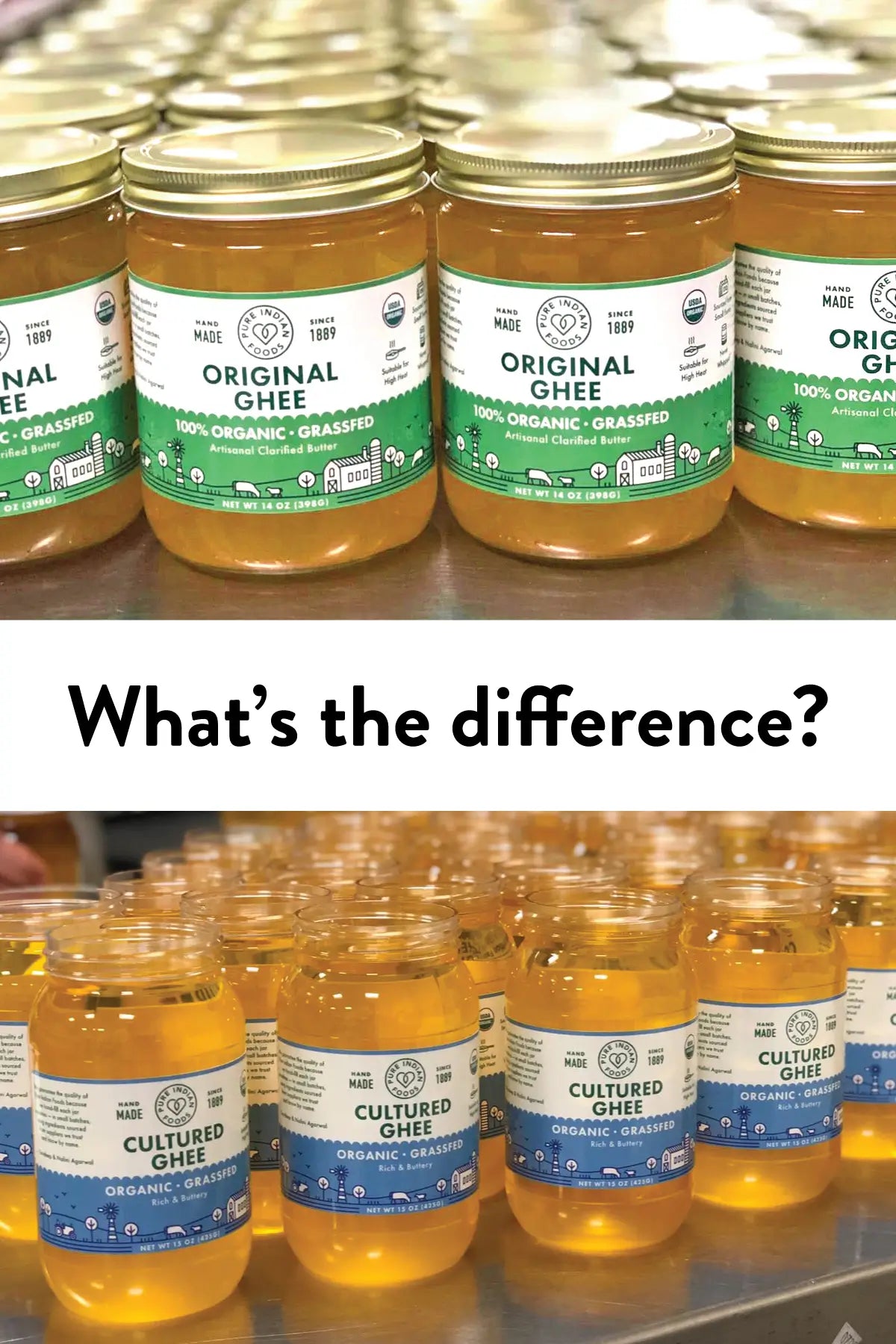
Many people ask us "what is the difference between ghee and cultured ghee?" The answer is actually very simple. Ghee is made from milk, and cultured ghee is made from yogurt.
How it's made.
Cultured ghee is made by simmering unsalted butter over low heat until the milk solids separate from the liquid fat. To make cultured ghee, we use the following steps:
- The milk is first separated from the cream.
- The cream is then cultured into yogurt by adding a small amount of bacterial culture and allowing it to ferment.
- The cultured yogurt is then churned into butter, and then the butter is heated over low heat until the milk solids separate and sink to the bottom.
- The clear golden liquid on top is the ghee, which is carefully separated from the milk solids and strained to remove any remaining impurities.
We make cultured ghee for people that are extremely dairy sensitive, and our cultured ghee undergoes lab testing as well.
If you are not extremely sensitive to dairy, there is essentially no difference between ghee and cultured ghee. But if you are allergic to dairy, then cultured ghee makes a world of difference.
So what does making ghee from yogurt do? How does that help people with dairy allergies? And if it's made from yogurt, does that mean it's fermented? Well, yes and no. Yes, it's fermented. But no, it's not a source of live and active cultures. It’s kind of like a sourdough bread, where the dough is fermented and then baked into bread. Even though a sourdough bread is not a probiotic or source of live bacteria, the fermentation process makes the bread easier to digest.

The Fermentation Process
Milk contains lactose, a natural sugar which gives it that delicate sweet taste. In order for the body to breakdown lactose into its basic components of simple sugars called glucose and galactose, an enzyme called lactase must be present. Many people lack this valuable enzyme in their digestive system, resulting in a common digestive problem known as lactose intolerance.
In order to metabolize lactose, lactase must always be present. During the culturing/fermentation process of milk or cream, lactose is converted into lactic acid. This makes for a much more digestible product for many people.
In the normal process of making ghee, the lactose is removed when the milk solids are separated from the fat. This means that normal non-cultured ghee does not usually cause a problem with lactose intolerance.
However, cultured ghee is even better than regular ghee for those with lactose issues, as lactose is converted into lactic acid during fermentation process. Despite the addition of the bacterial culture in the process, the bacteria do not survive the ghee-making process. This is because the high temperatures used in the process, coupled with the removal of the milk solids, effectively sterilize the ghee and kill off any bacteria present. Additionally, the lactic acid produced during the fermentation process further inhibits the growth of bacteria. As a result, cultured ghee is a pure, shelf-stable product that can be stored at room temperature for extended periods without refrigeration.

Why Cultured Ghee?
- Cultured Ghee has a more buttery taste as a result of fermentation of the cream. Many people prefer the taste and aroma of cultured foods.
- Batch-tested for traces of “dairy” (no more than 0.25% lactose and no more than 2.5 ppm casein/whey). This testing has not been done for our regular Ghee.
- Our traditional Cultured Ghee recipe has been used for thousands of years. The ancient tradition of Ayurveda considers Cultured Ghee important for strengthening Agni, our powerful digestive fire.
- Cultured Ghee is known as Desi Ghee in India, where the word desi means prepared with indigenous method.
